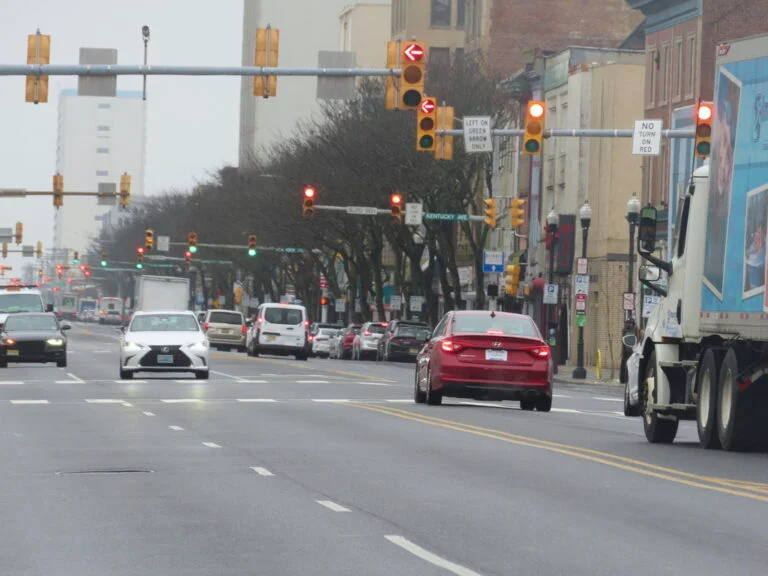Driving in New Jersey can be exciting but tricky. With busy highways, unique rules, and strict enforcement, knowing the state’s traffic laws is key to staying safe and avoiding fines. This guide breaks down the most important New Jersey traffic laws in simple terms, helping new and experienced drivers navigate the Garden State’s roads confidently. Whether you’re cruising through Newark or heading to the Jersey Shore, these rules will keep you on the right track.
Why New Jersey Traffic Laws Matter
New Jersey’s traffic laws, found in Title 39 of the New Jersey Statutes, are designed to keep roads safe for everyone. They cover everything from speed limits to seatbelt use. Breaking these rules can lead to tickets, fines, or even license suspension. Plus, following them helps prevent accidents and keeps traffic flowing smoothly. Let’s dive into the essential laws every driver should know.
1. Speed Limits: Stick to the Signs
New Jersey has clear speed limits to ensure safety. Unless a sign says otherwise, here are the basics:
- Residential areas: 25 mph
- Business districts: 25 mph
- Highways: 55–65 mph (check signs for specifics)
- School zones: 15–25 mph when children are present
Speeding is a common violation, and fines can be hefty. Always watch for posted signs, as limits can change based on road conditions or construction zones. Driving too fast not only risks a ticket but also makes accidents more likely.
2. Seatbelts: Buckle Up Every Time
In New Jersey, everyone in a vehicle must wear a seatbelt. This includes drivers, front-seat passengers, and anyone under 18 in the back seat. Adults in the back are strongly encouraged to buckle up too. For kids, the rules are stricter:
- Under 2 years and 30 pounds: Rear-facing car seat
- Under 4 years and 40 pounds: Forward-facing car seat
- Under 8 years and 57 inches tall: Booster seat
Not wearing a seatbelt can lead to a fine, but more importantly, it puts lives at risk. Seatbelts save thousands of lives every year, so make it a habit.
3. No Texting or Handheld Phones
New Jersey has tough laws against distracted driving. Using a handheld phone or texting while driving is illegal. This includes:
- Talking on a phone without a hands-free device
- Sending or reading texts or emails
- Browsing social media or apps
If you need to use your phone, use a Bluetooth headset or speakerphone. Breaking this law can lead to fines starting at $100, and repeat offenses increase penalties. If you get a ticket, you can learn How to Pay a Ticket in New Jersey online for a quick and easy process.
4. DUI Laws: Don’t Drink and Drive
Driving under the influence (DUI) is a serious offense in New Jersey. The legal blood alcohol concentration (BAC) limit is 0.08% for drivers over 21. For drivers under 21, any detectable alcohol (0.01% or higher) can lead to a DUI charge. Penalties include:
- Fines up to $500 or more
- License suspension for 3–12 months
- Possible jail time
New Jersey also enforces an implied consent law. If you refuse a breathalyzer test, you could face automatic fines and license suspension. The safest choice? Never drive after drinking.
5. Unique NJ Rule: No Self-Service Gas
New Jersey is one of the few states where you can’t pump your own gas. State law requires gas station attendants to handle fueling. This rule, in place since 1949, aims to ensure safety and create jobs. If you try to pump your own gas, you could face a fine, though enforcement is rare. Just sit back and let the attendant do the work.
6. Right-of-Way: Know Who Goes First
Understanding right-of-way rules prevents confusion at intersections. Key points include:
- At a four-way stop, the first vehicle to stop goes first. If two arrive at the same time, the vehicle on the right has priority.
- Pedestrians always have the right-of-way at crosswalks.
- Emergency vehicles (with lights and sirens) get priority. Pull over safely to let them pass.
Ignoring right-of-way rules can cause accidents and lead to tickets. Stay alert and yield when required.
7. Move Over for Emergency Vehicles
New Jersey’s Move Over Law requires drivers to slow down and move over one lane when passing stopped emergency vehicles, like police cars, ambulances, or tow trucks, with flashing lights. If you can’t move over safely, slow down significantly. This law protects first responders and roadside workers. Violations can result in fines up to $500.
Tips for Safe Driving in New Jersey
Beyond following traffic laws, here are some practical tips to stay safe:
- Plan your route: New Jersey’s roads, like the Garden State Parkway, can be busy. Use GPS to avoid traffic jams.
- Watch for pedestrians: Cities like Jersey City have heavy foot traffic. Stay cautious, especially in urban areas.
- Maintain your vehicle: Regular checks on tires, brakes, and lights help prevent accidents.
- Stay calm: Aggressive driving, like tailgating, is illegal and dangerous. Keep your cool, even in traffic.
What Happens If You Get a Ticket?
If you break a traffic law, you might get a ticket. Fines vary depending on the violation, but paying promptly avoids extra fees. Most tickets can be paid online at https://www-njmcdirects.us/. If you think the ticket was unfair, you can contest it in court, but be prepared with evidence.
Why Following These Laws Benefits Everyone
New Jersey’s traffic laws aren’t just rules—they’re tools to keep roads safe. By following them, you protect yourself, your passengers, and others. Plus, you avoid costly fines and points on your license, which can raise insurance rates. Safe driving builds trust in our communities and makes every trip smoother.
Stay Informed and Drive Smart
New Jersey’s traffic laws are straightforward once you know them. From buckling up to avoiding distractions, these rules are about keeping everyone safe. Whether you’re a new driver or a longtime resident, staying updated on laws like Title 39 ensures you’re ready for the road. Drive carefully, follow the rules, and enjoy your time on New Jersey’s roads!











